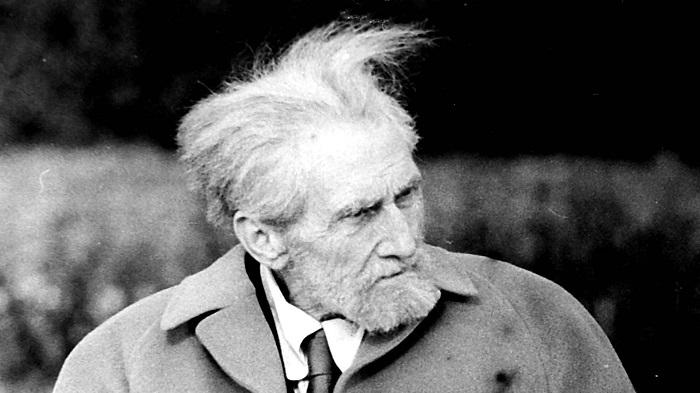Why Ezra Pound's Work Still Divides Readers

Ezra Pound remains one of the most controversial figures in modern poetry. His works shaped the course of twentieth century literature, yet his personal life and political views often cast shadows over his legacy. Some readers celebrate him as a genius who revolutionized poetic language. Others criticize him for his dense style and troubling ideas. This division continues today, long after his death. By exploring his works in detail, one can see why Ezra Pound continues to inspire admiration and rejection in equal measure.
Ezra Pound and Modernist Innovation
A New Way of Writing Poetry
Ezra Pound is often called the father of modernist poetry. His famous phrase “Make it new” captured the spirit of innovation that he demanded from writers. He broke away from traditional forms, meter, and rhyme. Instead, he experimented with free verse, fragmented structures, and new rhythms. This bold departure made him a leader of the modernist movement.
The Imagist Revolution
Pound’s early work was central to Imagism, a movement that valued clarity, precision, and vivid imagery. In short poems like “In a Station of the Metro,” he used direct language and sharp images to create strong effects. The poem’s brevity and visual style shocked traditional readers but inspired others who wanted fresh forms. His approach showed that poetry could work like a painting, with every word as a brushstroke.
The Cantos and Their Challenge
A Monumental Work
Pound’s most ambitious work is The Cantos, a long poem spanning decades. It combines myth, history, economics, and personal reflection. The scope is massive, and the structure is complex. Many readers find the work brilliant but difficult to understand. It does not follow a linear narrative but instead moves through fragments, quotes, and allusions.
The Problem of Accessibility
Because of this complexity, The Cantos divides readers. Some view it as a masterpiece that reshapes poetry by weaving together civilizations and traditions. Others see it as impenetrable and chaotic. Its reliance on multiple languages and obscure references frustrates readers who are unfamiliar with Pound’s vast range of knowledge. This tension between brilliance and difficulty is one reason Ezra Pound continues to divide opinion.
Ezra Pound and Political Controversy
The Weight of History
One of the most difficult aspects of Pound’s legacy is his political alignment during World War II. He supported Fascist Italy and delivered radio broadcasts filled with troubling views. These actions led to his arrest and later confinement in a psychiatric hospital. For many, his political errors cast a shadow over his art.
Art and Morality
This political controversy divides readers further. Some argue that his artistic genius should be considered apart from his political views. Others claim that his ideology is too deeply tied to his work to ignore. For example, parts of The Cantos include references to economics and governance that reflect his flawed politics. The debate over whether art can be separated from the artist remains central to discussions about Ezra Pound.
Ezra Pound as a Mentor
Support for Other Writers
Despite his controversies, Pound was a crucial mentor to other writers. He played a central role in shaping the careers of figures like T. S. Eliot, James Joyce, and H. D. He famously edited Eliot’s The Waste Land, cutting large sections and sharpening its focus. Without Pound’s guidance, some of modernism’s most celebrated works might not exist in their current form.
Admiration and Resentment
This role as a mentor adds another layer to the division. Many admire him for his generosity and ability to recognize talent. Yet his forceful personality and sharp criticism sometimes created resentment. His influence is undeniable, but it is also complex and polarizing.
Ezra Pound and Language
Experimenting with Form
Pound’s experiments with language also contribute to divided responses. He used multiple languages, archaic forms, and classical references. Readers who love the challenge find his works rewarding, full of layers and connections. But for others, the mix of Chinese ideograms, Latin, Greek, and obscure historical detail makes the work inaccessible.
The Beauty of Precision
In his Imagist phase, however, Pound’s precision is undeniable. Poems like “The River-Merchant’s Wife: A Letter,” a translation from Chinese, capture delicate emotions with simple language. Here, readers find his skill in expressing feeling through clarity and restraint. These works often attract wider admiration than his more difficult later writings.
Ezra Pound and the Question of Legacy
A Divided Reputation
Today, Pound’s reputation remains divided. Scholars admire his role in creating modernist poetry and his technical brilliance. General readers often struggle with his dense style and reject his political legacy. This tension ensures that debates about Ezra Pound remain alive in classrooms, literary journals, and public discussions.
Influence Beyond Controversy
Even those who dislike him cannot deny his influence. Without Pound, modernist literature would look very different. His insistence on new forms, new rhythms, and new ways of seeing shaped an entire generation of writers. His legacy is one of both creation and conflict, which is why he continues to provoke strong reactions.
Conclusion
Ezra Pound is a poet who will never be universally loved or universally dismissed. His work divides readers because it balances innovation with difficulty, brilliance with controversy, generosity with arrogance. His Imagist poems remain admired for their clarity. His Cantos continue to challenge readers with their scope and complexity. His political choices remain a stain on his legacy, but his impact on literature is undeniable. To study Ezra Pound is to confront the paradox of a man who reshaped poetry yet carried deep flaws. That paradox ensures that his work will remain a subject of debate, admiration, and criticism for generations to come.
- Art
- Causes
- Crafts
- Dance
- Drinks
- Film
- Fitness
- Food
- Spellen
- Gardening
- Health
- Home
- Literature
- Music
- Networking
- Other
- Party
- Religion
- Shopping
- Sports
- Theater
- Wellness



